Main Menu
Latest Blog Entry
User login
Middle distance running: science, myths & practice
“Why get obsessed with details if they don’t matter yet?”
Steve Magness, at GAIN 2016 presenting on “Current concepts of endurance training“. I have been privileged to meet up with Steve for 3 GAIN conferences, and his thoughts have greatly shaped the work I do with our Middle Distance Running group.
Here are some of the key principles that underpin the work we do. Steve has had considerable success with his athletes (he does have a better gene pool!) both at professional and collegiate level. But, success can be defined as knocking off 2 minutes from your 5km Park Run time at 53 years old like Martin Baxter has done.
What actually matters?
This is very important to understand. It is easy to get caught up in the latest fad, or copying someone elses’s workout they posted on facebook. This applies at all levels!
That could be “stuff” like Garmin watches, altitude masks, compression socks, beetroot tablets. Or it could be training plans: High Intensity Interval Training (HITT), Training Zones, High Volume or Cross Training.
It is perhaps the biggest reason to get a decent coach. Too many athletes (speaking from experience) come to me from other clubs without any idea of why they do sessions.
Steve emphasised the importance of “Developing your why.”
It is important to listen to people who “Have skin in the game” rather than “some Professor telling you to do it“. This means learning from coaches who are producing athletes with results regularly.
Developing a Middle Distance Running Philosophy
However, Steve is far from being a “Luddite flat-earther”. His coaching his based around 3 areas:
- Art (Coaching, trial, error, experience)
- Science (Research, results)
- History (Learning from previous coaches such as Fred Wilt, Herb Elliott, Percy Wells Cerutty)
Note the breadth and depth of these areas. This has helped ground Steve and be less resistant to fads or “folklore“(Ken Doherty phrase) than some other endurance coaches.
For example one of the Middle Distance Running tenets is “Mileage wins medals“. It is common to hear runners at all levels talking about how many miles they have run. Steve gave the example of coaching one runner recovering from illness who had no idea how many miles she was running , but still managed to train effectively (for her).
Steve had to adapt his coaching (science and art) to this runner, despite being unable to get so called essential information (mileage). All her runs were based on time and effort.
If your only coaching plan is run (X miles +1) every week, then you are only working on one aspect of middle distance running: Volume. The same thoughts apply to those who only do “intervals” or any other single parameter of training.
Middle Distance Running Myths
Here are some key points I picked up from Steve this year and previously.
- If your results are continuing to improve, there is no need to change for change sake. “Don’t go somewhere until you need to go somewhere.“
If your 1 mile time is continuing to drop on your current plan, keep going. When it plateaus it is time to adjust.
- Don’t do workouts to prove something to yourself: do them to create an adaptation. Sometimes you will have “see God days” (lying down on the track exhausted) but that is part of a process, rather than the goal.
- There is a time to train and a time to rest. No such thing as half way rest. Don’t force yourself if its not in the plan.
- It’s not about recovery, it’s about adaptation. You are trying to get fitter, your recovery should be helping you to adapt to your training session.
- Performance is a consequence of good training. Therefore make the training good and relevant to performance: take away the watches and split times and train like you race. Change your usual environment.
- There is a big difference between creating workouts for newcomers (anything is a stimulus, so easy to make improvements) versus runners with 10 years+ of experience. So beginners trying to copy experienced runners is often unnecessary, and experienced runners need specific direction.
- High Intensity vs Low Intensity: this should be a redundant discussion. You have EVERY intensity at your disposal, so use them. There is a continuum between sprinting to slow steady running (even hill walking); finding the right mix depends on your event and your athlete, and the stage they are at.
Important points for our athletes
One of the key things that has come up is consistency of training. It is more important that you have a lot of good, average days than you trying to thrash yourself all the time. Your training has to be sustainable over 3-4 months.
The next thing is to find out what stimulus you are trying to create to adapt in the direction you want. About half of Steve’s athletes need more fitness to race at the next level. Other athletes may need more speed, more endurance, or more pacing strategy. Each workout should then be planned around this.
You plan training above and below what is necessary for your race. For example 3 sessions may look like this:
- 1 mile at 4:22 (3 mins rest) 4 sets total
- 20 minutes at 5 min pace, then a 3 minute jog
- 400m at 60 second pace (1 min rest) 6 sets total. (Steve’s sessions, our athletes run slower than that!)
Steve said that whilst many average runners can do a good workout, or run a good part of a race, the best runners can put the whole plan together and execute it on race day.
One way I facilitate this is to make the training resemble the race. We do run times/ splits, but we also race in training and we definitely create adverse situations for our runners to overcome. They have to think and adapt to what is being thrown at them.
Summary
I have briefly touched on what has been hours of listening to Steve, then talking with him, plus reading his book. What I like is that Steve has studied the history, science and art of coaching middle distance running, plus applied it in his own training and with his athletes.
I have managed to apply many of these lessons into our running sessions, alongside the technique work gained from Frans Bosch/ Gary Winckler and it is great to see the improvement (and reduced injuries) of our club runners in Willand.
Further reading:
Client Testimonials
 University of Exeter
University of Exeter
James has been our lead strength and conditioning coach for the Talented Athlete Scholarship Scheme (TASS) at the University of Exeter since the scheme's inception. His attitude, professionalism and above all his drive and desire to help each sportsman and woman develop and reach their potential is exactly what we require. James shows a real interest in each of his athletes and helps them to aspire to be as good as they can and ensures that no goals are unattainable.
More


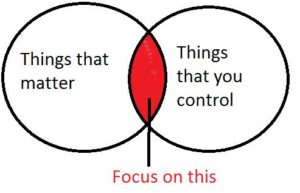
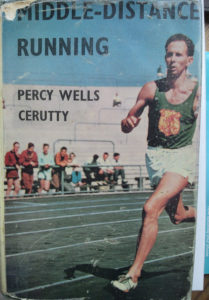
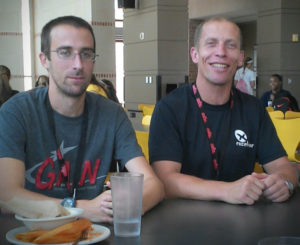
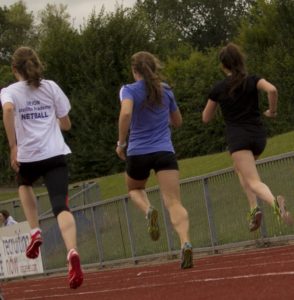
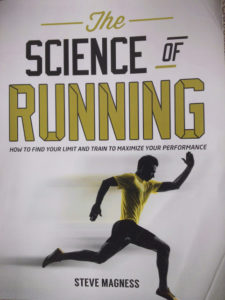
Comments
Pleased to say that my 9 year old son is enjoying 800m running and school cross country races. He never trains more than 70metres at a time. He just goes fast.
Adults often want kids to train like joggers, rather than runners.